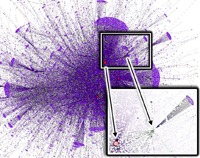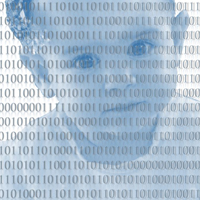The Department of Communication faculty focuses on quantitative social science approaches and pursues a multidisciplinary blend of scholarship with an emphasis on understanding the fundamental processes of production, transmission and reception of messages. The communicated message itself is at the center of our approach to understand reality.
Our research subjects of study encompass individuals, dyads, groups, organizations, audiences, nations and other entities. Among many other contributions, research of our faculty has elucidated frequently cited findings on these topics

- the impacts of prescription drug advertising and related publications
- the network of international telecommunication and news flows and related publications
- the role of the Internet as a source of political information and related publications
- the growth and impact of the world's digital capacities and related publications
- the importance of supportive interactions in offline and online environments and related publications
- the effects of sexual television content and related publications
- the effects of avatars in virtual settings on human behavior and related publications
- the connection of multiplayer online games and psychosocial well-being and related publications
- the role of goal orientation in communication and related publications
- how content arousal influences message encoding and related publications
The insights that our faculty members gain through their research are often generalizable to and relevant for other social-science disciplines which set part of the context in which messages are exchanged. Although we maintain the equally weighted significance among the individual, technological and societal levels of communication, we realize that over recent decades, the digital revolution has intensified the role of technology in communication.
On the one hand, the digital age is the latest stage in a long history of mediated communication that goes back to the first wall paintings and smoke signals at the dawn of humanity. On the other hand, the recent discoveries in electrical engineering and computer science are so powerful that technological systems now for the first time mediate the majority of human communication. The outcome is the global socio-technological ecosystem that constitutes the driving force of current social evolution.
The most notable force of change in the global communication landscape is the ongoing process of digitization of human communication, with its global epicenter here in Northern California. The average time spent online in the U.S. increased from roughly one hour to three hours per day between 2000 and 2013.

In 2013, people spent on average approximately eight hours per day engaging with others via technologically mediated communication means, while socializing less than 3.5 hours per day face-to-face. Digitization of mediated communication has occurred in a historic blink of an eye, with less than 1 percent of the global information stock being digitized in the late 1980s, and some 99 percent available digitally 25 years later. The Internet has displaced television, newspapers, radio and personal sources as the most important and most prevalent source of information, and is overtaking television as society's main entertainment source. Global video game sales reached U.S. $50 billion in 2014, making the creation of virtual worlds larger than 60 percent of the world's national economies. The result is a process of media convergence among traditional media outlets and an ever-changing variety of digital technologies.
In the same way, online and offline worlds are increasingly merging. Today, most people consider online communication essential to maintain social relationships, and people from all over the world report that their contacts with family members and friends have increased as a result of online communication. Political campaigns reassign their budget allocations from TV commercials to micro-targeting in social online networks; digital communication networks among health care providers and patients lead to significant cost savings; social media is used as a weapon in social protests; and our behavior in virtual worlds affects our everyday behavior.
Particular technologies become outdated rapidly, whereas basic aspects of the human and social nature of communication transcend temporal technological trends and related contexts. As communication scholars we approach reality from a perspective of the fundamental processes of communication. The ongoing process of how people and societies exchange messages in a digitized world is a principal focus of the UC Davis Department of Communication. The communication scholars who compose our faculty emphasize the continual presence and evolution of technologies in human communication.
